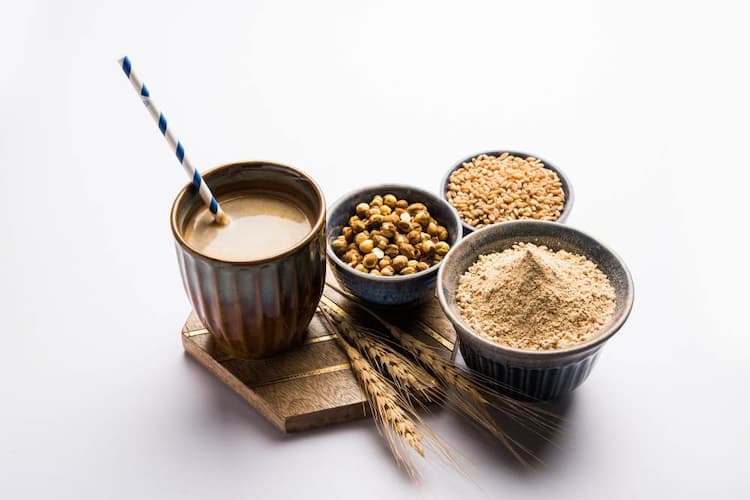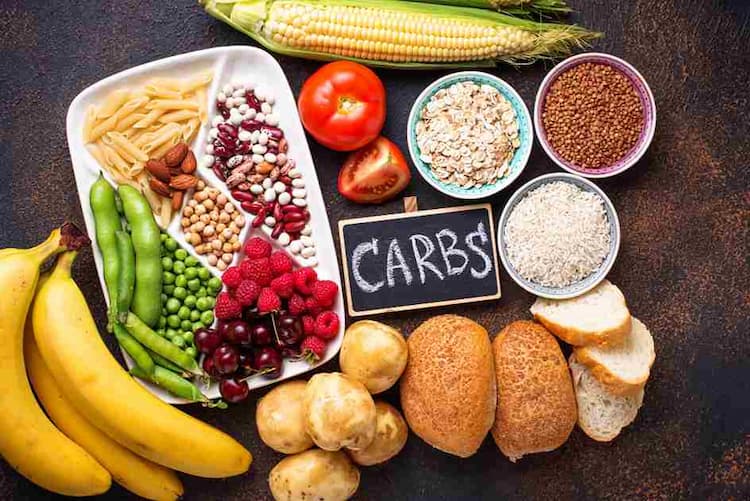Food That Helps in Managing Thyroid Levels

Medically Reviewed By
Dr. Ragiinii Sharma
Written By Prekshi Garg
on Nov 26, 2022
Last Edit Made By Prekshi Garg
on Mar 18, 2024

The thyroid is a gland that is butterfly-shaped at the base of the neck and it produces thyroid hormone, which is responsible for controlling many activities in your body that largely includes activities like the speed at which you burn your calories and the speed of your heartbeat. People with thyroid problems either have too much or too little of the hormone, depending on how much or how little their thyroid gland makes. It is common to feel restless or tired for the people with hypothyroidism. People with this condition may also lose or gain weight unintentionally and very rapidly. Women are known to be more prone to thyroid problems than men, especially post-pregnancy and post-menopause.
Types of thyroid disorders and symptoms
Thyroid problems include many disorders that can lead to the thyroid gland producing too little or too much of the hormone; however, the condition can be managed by consuming foods good for the thyroid. First, you should know the different thyroid disorder types to understand them well. The symptoms of thyroid disorders depend upon the location of the thyroid, like under or over-producing hormones. Some of them are autoimmune because of the body's immune system attacking the thyroid gland. Many thyroid disorders need an expert health physician to get them treated.
Types of thyroid disorders are:
- Hypothyroidism
When a person's thyroid does not produce enough hormones, it is called hypothyroidism; women are more prone to it than men. The condition can be managed by consuming a hypothyroidism diet; you may know that you have this thyroid disorder if you experience symptoms like
- Fatigue
- Weight gain
- Intolerance to cold temperatures
- Constipation
- Decreased heart rate
- Coarse hair and skin
- Having coarse voice
- Experiencing forgetfulness
- Frequent and heavy menstrual periods
- Hyperthyroidism
It is a type of thyroid disorder when your thyroid gland starts over-functioning and produces more hormones than required; it is the reverse of the hypothyroidism condition and is also more common in women than men. If you have this thyroid disorder, then you may experience symptoms like:
- Fatigue,
- Weight loss,
- Increased appetite,
- Intolerance to heat,
- Increased heart rate with palpitations,
- Cardiac arrhythmias,
- Tremors
- Diarrhea
- Increased sweating
- Thinning of hair
- Enlarged thyroid glands
- Irregular menstrual periods
- Having vision problems
Who is at more risk for thyroid disease?
The thyroid can affect anyone, but women are more prone to it. It can be present from the time of birth and can also develop with age or post-menopause in women. The disease is common and can be managed well with minor changes. To manage it, people must have the best foods for the thyroid to stay fit and healthy. Women are much more at risk of suffering from the condition in comparison to men; however, you are at higher risk of developing thyroid:
- If you are someone with a family history of thyroid disease.
- If you are someone with medical conditions like type 1 diabetes, pernicious anemia, rheumatoid arthritis, turner syndrome, etc.
- If you are someone that takes a medicine high in iodine
- If you are a person, especially a woman older than 60 years
- If you are a person having past treatment for thyroid condition or cancer.
Causes of thyroid
There are two types of thyroid disorders, hypothyroidism, and hyperthyroidism, and both are caused by other diseases that impact the functioning of the thyroid gland.
Conditions that cause hypothyroidism:
Thyroiditis - is a condition in which there is an inflammation or swelling of the thyroid gland. This condition lowers the number of hormones that the gland produces.
- Hashimoto's thyroiditis: It is an inherent condition and a painless disease and is an autoimmune condition in which the body's cells attack and damage the gland.
- Postpartum thyroiditis - it is a condition that may be experienced by nearly 5 percent of women post-delivery and is a temporary condition.
- Iodine deficiency- iodine is the crucial component that helps the thyroid gland to produce hormones, and its lack causes an issue and affects people.
- Non-functioning thyroid gland - in a few cases, thyroid gland functioning is not up to mark and does not work by birth. It is a rare condition in newborns, and if left untreated child can have both physical and mental issues.
Conditions that cause hyperthyroidism
- Nodules - hyperthyroidism can be caused by the nodules that can be overactive within the thyroid. It is also known as an enlarged thyroid gland or diffuse toxic goiter.
- Graves disease- is a condition in which the entire thyroid gland might be overactive and lead to the overproduction of hormones. It is also known as an enlarged thyroid gland or diffuse toxic goiter.
- Thyroiditis -it is a condition in which the thyroid gland releases hormones that are stored. It is a disorder that is painful sometimes or not felt many times and can last for weeks or even months.
- Excessive iodine - In contrast to hypothyroidism, it can be caused by having too much iodine and lead to the making of much more hormones than required.
Managing thyroid with diet - is it possible?
The thyroid gland controls the metabolic processes and produces hormones that regulate many biological functions. The condition can lead to many health-related issues if a thyroid gland becomes sluggish or overactive. One of the best ways to manage and ensure the perfect functioning of the thyroid gland is through the food consumed. People should consume the best foods for thyroid gland for its optimal functioning. There are many foods good for thyroid gland health that ensure it stays balanced and attains a state of equilibrium.
Best foods for thyroid patients that they must include in the diet
Thyroid hormones play a vital role in regulating growth, controlling metabolism, and repairing cells. The gland produces mainly three types of hormones, i.e., T3 or Triiodothyronine, T4 or Tetraiodothyronine, and Calcitonin. If the gland is overactive, the condition is termed hyperthyroidism, and if the gland is underactive, then it is termed hypothyroidism. However there is medication to manage them both, but following a hypothyroidism diet can help you to manage it well, and a specific diet plan can help you manage the hyperthyroidism condition. There are some best foods for thyroid patients that can help them manage related disorders and restore functionality:
- Yogurt
Yogurt is a food good for the thyroid that works magic for the thyroid gland. It is among the best dairy products, which is well known for its nutrient-rich characteristics and offers many health benefits. Adding yogurt to your daily diet will help supply the body with probiotics to fight stomach infections. It is the best food to fulfill the body's requirement of Vitamin D and iodine and thus is among the best foods for hypothyroidism.
- Beans and legumes
Beans and legumes are considered among the best foods to include in your hypothyroidism diet. Both are a great source of sustained energy and contain protein, antioxidants, complex carbs, and loads of minerals and vitamins. They are fully packed with fiber, the best cure for constipation, a common side effect of hypothyroidism. There are wide varieties from which you can add any to your diet plan.
- Green tea
Green tea is among the best foods for thyroid as it can solve many thyroid problems naturally and safely. It has many beneficial properties making it best for the thyroid. It has the potential to solve my thyroid-related issues. If you have the thyroid and cannot produce enough hormones, your metabolism slows down, leading to weight gain. Green tea helps to increase your metabolic rate and helps you burn more calories.
- Broccoli
Broccoli is fully packed with calcium, fiber, and vitamin C and helps the body to boost metabolism. Any food item that helps to increase the body's metabolism should be included in your hypothyroidism diet. It is said to be the best food for thyroid patients because it raises the TEF and increases metabolism.
- Apple, pears, berries, and citrus,
However, including fruits in your diet offer many health benefits, especially for thyroid patients: apples, plums, pears, and citrus fruits work best. All these fruits are filled with pectins that help the body detoxify mercury, which is the critical metal associated with thyroid disorders. Berries, on the other hand, are rich in antioxidants and are excellent for the thyroid gland, it helps stimulate thyroid hormones and keep their functioning smoothly.
- Nuts
Brazil nuts are among the best foods for thyroid problems as they contain selenium, which helps regulate thyroid hormones. It prevents long-term effects of thyroid damage to the body and other thyroid-linked problems like Graves disease and Hashimoto's disease. As per research, women who consume more amount of selenium in their diet are less likely to develop goiters and thyroid-related tissue damage.
- Eggs
Eggs are one of the best food items that should be included in a hypothyroidism diet, as iodine and selenium are vital for proper functioning, and eggs are an excellent source of both. Consuming egg yolk provides you with 10 percent of iodine and 16 mcg of selenium that you require in a day. Eggs should be your top pick while following the best diet for hypothyroidism.
- Seafood
Zinc is among the best nutrients that help to control and produce thyroid hormones, low zinc levels are one of the causes of hypothyroidism, and it is necessary to consume high-zinc foods. Seafood is one of the best sources of zinc, as you should include salmon, oysters, etc., to fulfill your need for zinc.
- Oats and Quinoa
Adding oats, quinoa, sprouted grain bread, brown rice, and sprouts to your diet is best as it can help to revise your metabolism and help your thyroid gland produce hormones. Choosing suitable cereals over refined varieties is vital, and they should be added to the daily regime to manage hypothyroidism.
Hypothyroidism is a common health condition affecting a large number of people. The thyroid gland of a person with hypothyroidism does not release sufficient thyroid hormones even if they have plenty of TSH. People with this disease can experience symptoms like hair loss, cold intolerance, fatigue, mood changes, and constipation. While it is well known that medication is the best way for thyroid treatment, it can also be managed well by changing your daily diet and lifestyle. There are some people who experience extreme symptoms while others experience mild symptoms; in both situations, you must visit your healthcare provider to get and follow an appropriate treatment plan to improve your overall quality of life.
Foods to avoid for thyroid patients
There are certain foods to avoid with hypothyroidism as they can interfere with thyroid gland functioning. Restricting the consumption of certain foods can help you manage the condition well. Some foods to avoid are:
- Foods having goitrogens.
Thyroid patients should avoid food items containing goitrogens compounds as this compound may affect thyroid function if taken in excess amounts. Generally, foods containing this compound, like broccoli, etc., are beneficial for overall health, but consuming them in excess can lead to issues for thyroid patients. Some foods containing the compound are
- Cauliflower,
- Broccoli
- Kale
- Cabbage,
- Broccoli rabe
- Brussels
- Soy
Soy is a food rich in phytoestrogen, and estrogen and the thyroid are interlinked, and the production of estrogen can interfere with the ability to produce thyroid. If you need to boost estrogen, soy can be a great option, but it is not suitable for thyroid patients as it is directly linked to hypothyroidism, so it is the best food to avoid if you want to manage your thyroid well.
- Processed foods
People with thyroid problems, especially hypothyroidism, should avoid consuming sodium, and a huge amount of sodium is consumed through processed foods. If consumed, you are at great risk of having high Blood pressure, and sodium consumption can worsen the condition.
- Fatty foods
Avoiding fatty foods is a must for people with hypothyroidism as they are bad for everyone for people with low or high thyroid. High-fat and fried foods are bad for your overall health and should be avoided at any cost. It is one of the top foods to avoid as they are bad for thyroid gland functioning. You must avoid mayonnaise and margarine and add lean meat to your diet instead of meats with high-fat content.
- Refined sugar
Refined sugar is considered a food bad for thyroid as people with an underactive thyroid can have a slow metabolism and are more prone to gain weight. Refined sugar is bad for health, and if you tend to gain weight, refined sugar will contribute more to eating. Eating excess amounts of it can lead to many other negative consequences as well like high cholesterol and fatigue, and can also lead to liver damage in some cases.
- Alcohol
If taken in moderation, alcohol does not interfere with body functioning, but if taken in excess can disturb your thyroid gland functioning and the functioning of many other organs. Alcohol can suppress the gland's ability to produce thyroid, leading to an underactive thyroid condition. It is advised to avoid caffeinated drinks and also to manage thyroid disorders as it significantly blacks the absorption of thyroid hormone replacement.
FAQs
- Is milk best for people with thyroid-related issues?
Milk contains calcium that has the ability to absorb thyroid hormone replacement medicines. Thus thyroid patients must consult their physician before consuming milk.
- Which of the two is the most common, Hyperthyroidism or Hypothyroidism?
Hypothyroidism is much more common than other ones.
- What problems are experienced by thyroid patients?
Over time thyroid patients can have many health problems like obesity, infertility, joint pain, and heart disease.
- Which fruit is best for thyroid patients?
Fruits like apples, pacers, plums, and citrus fruits are the best foods for a thyroid diet.
- Is walking best for thyroid patients?
Yes. Walking and any physical activity can help you manage your thyroid. You can indulge in walking, running, or playing any sport, as they all have mind-blowing benefits and manage thyroid problems.
- Can thyroid be cured permanently?
Yes, it can be controlled permanently through surgery or by destroying it through various medications. You can manage it well by consuming foods good for thyroid.
Conclusion
An individual's diet can significantly impact thyroid symptoms as some foods can improve the condition, and some can worsen it even further. Certain food items will not cure thyroid, but some nutrients and minerals play a vital role in managing the disease. It is essential to understand foods to avoid with hypothyroidism and foods good for the thyroid and for good functioning to manage the condition well. Changing diet and lifestyle can help you manage thyroid problems as many nutrients support healthy thyroid functions and decrease symptoms.



